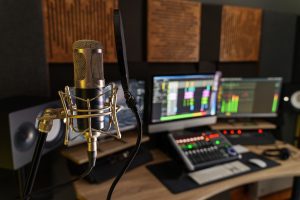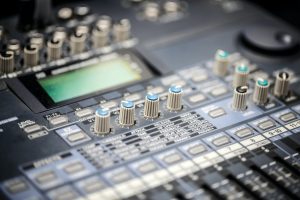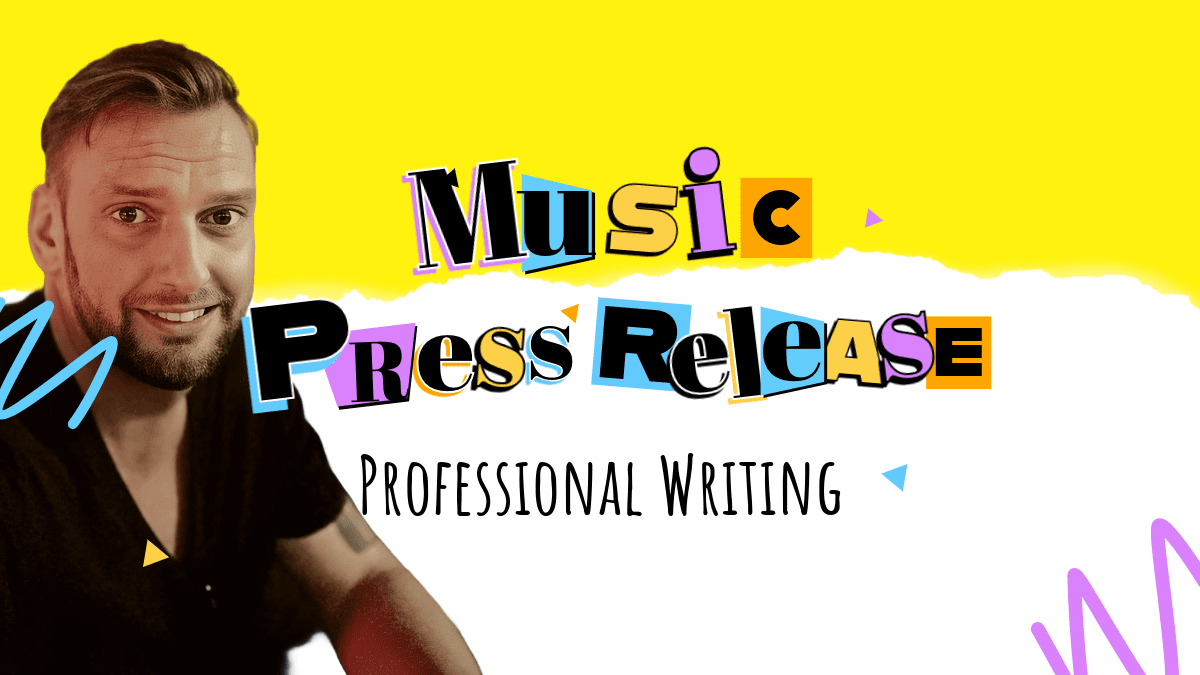 The future of music: How AI is Transforming the Industry as We Know It
The future of music: How AI is Transforming the Industry as We Know It
Music has been an integral part of human culture since the beginning of time. With the advent of technology, music production and consumption have undergone a dramatic transformation, and the latest addition to this evolution is Artificial Intelligence (AI). AI’s influence on the music industry is being felt across the board, from music production, composition, and distribution to marketing and promotion. AI is changing the way musicians create and produce music, allowing them to experiment with new sounds and instruments, and to produce music more efficiently. In this blog post, we will explore the impact of AI on the music industry and how it is transforming the way we experience and enjoy music. We will also look at some of the challenges that come with the integration of AI in music and what the future holds for this innovative technology. So, let us dive in and discover the future of music together!
1. Introduction to AI in the music industry
Artificial Intelligence (AI) is disrupting every industry and the music industry is no exception. AI is transforming music creation, distribution, and consumption. The music industry has always been on the cusp of technological innovation, from the introduction of vinyl records to the advent of streaming services. In recent years, AI has been making waves in the music industry by enabling new ways of creating and distributing music. AI has the potential to revolutionize the way we listen to music and the way music is created. The use of AI in the music industry is not new, but with the rapid advancements in technology, it is becoming increasingly prevalent. In this blog, we will explore the different ways AI is transforming the music industry and what the future holds for this exciting new technology.
2. The impact of AI on the music industry
AI or artificial intelligence is revolutionizing the music industry in ways we never thought possible. With AI, we can create music that is beyond the human imagination, with algorithms that can generate melodies, harmonies, and rhythms that are unique and captivating. AI can also help musicians to compose, produce, and distribute music with greater speed, efficiency, and accuracy than ever before.
One of the most significant impacts of AI in the music industry is the ability to analyze vast amounts of data, such as music trends, listener preferences, and social media activity. This data can help musicians and record labels to identify the most popular genres, styles, and artists, which can inform their songwriting and marketing strategies. AI can also be used to personalize the listening experience for individual users, creating customized playlists based on their mood, behavior, and past listening habits.
Another area where AI is transforming the music industry is in the creation of virtual musicians or avatars. These digital entities can perform on stage, record music, and even interact with fans, without the need for a physical human presence. This opens up new opportunities for creativity, innovation, and entertainment, with endless possibilities for collaboration and experimentation.
Overall, the impact of AI on the music industry is vast and far-reaching, with many exciting developments yet to come. As AI continues to evolve and improve, we can expect to see more and more innovations in the music industry, transforming the way we create, consume, and experience music forever.
3. AI in music production
 Artificial Intelligence (AI) is revolutionizing the way music is produced. With AI, music producers can now create music that is more personalized and unique, with sounds that were previously impossible to create. AI-powered software can analyze and learn from millions of songs, helping producers to create new sounds, predict trends, and create music that resonates with audiences.
Artificial Intelligence (AI) is revolutionizing the way music is produced. With AI, music producers can now create music that is more personalized and unique, with sounds that were previously impossible to create. AI-powered software can analyze and learn from millions of songs, helping producers to create new sounds, predict trends, and create music that resonates with audiences.
AI is also being used to automate the production process, reducing the time and costs involved in producing music. For instance, AI can automatically tune vocals, adjust the tempo, and even create new instruments from scratch. This has made it easier for independent artists to create high-quality music without breaking the bank.
In addition, AI is also being used to personalize music for different audiences. For instance, streaming services are using AI algorithms to create personalized playlists for users based on their listening history, preferences, and even their mood. This has transformed the way we discover and consume music, making it easier to find new and interesting artists.
Overall, AI is transforming the music production process, making it more efficient, personalized, and innovative. It is helping artists and producers to create music that resonates with audiences and pushing the boundaries of what is possible in music production. The future of music is exciting, and AI is playing a major role in shaping it.
4. AI in music composition
Artificial Intelligence (AI) has been a game-changer in various industries, and the music industry is no exception. AI is now being used to create music compositions, and it has the potential to change the way we make music forever. One of the most significant advantages of AI in music composition is that it can create unique and original music based on the parameters and instructions given to it by a composer or musician. This means that AI can produce music that is entirely different from anything that has been created before, and the possibilities are endless.
AI can also help musicians and composers to save time by generating ideas and melodies that they can use as a starting point for a new song. This can be particularly helpful for artists who suffer from writer’s block or those who are looking for new inspiration. With AI, the creative process can be streamlined, and artists can focus on refining and perfecting their music.
Another advantage of AI in music composition is that it can help to democratize the industry. With AI, anyone can create music without having to go through the traditional channels of learning a musical instrument or studying music theory. This means that more people can participate in the music-making process, and we may see a rise in the number of people who are interested in making music.
However, there are also concerns about the impact of AI on the music industry. Some musicians and composers worry that AI will replace them and make their skills redundant. While it’s true that AI can create music, it’s important to remember that it’s still a tool that requires human input and guidance. AI can’t replace the creative vision and emotional depth that come from human expression.
In conclusion, AI has the potential to revolutionize the music industry, and we are only just beginning to see its impact. As with any new technology, there are benefits and drawbacks, but it’s clear that AI in music composition is here to stay. It will be interesting to see how musicians and composers adapt to this new technology and how it will shape the future of music as we know it.
5. AI in music curation and discovery
Thanks to AI, music curation and discovery have become more personalized and efficient than ever before. Services like Spotify and Pandora use machine learning algorithms to analyze individual listener data, such as what songs they listen to and how often, to create custom playlists based on their preferences. These algorithms also take into account factors like time of day, mood, and even weather to provide listeners with the perfect soundtrack for any occasion.
AI has also revolutionized music discovery, allowing users to discover new artists and genres based on their listening history. By analyzing music data across multiple platforms, AI-powered recommendation engines can suggest new songs and artists that a listener is likely to enjoy.
AI has even extended beyond just music recommendation and into the actual creation of music. AI-powered music composition tools can create original compositions in a matter of seconds, saving time and resources for musicians and producers alike. While some may argue that AI-generated music lacks the soul and emotion of music created by human artists, it is undeniable that the technology has made it easier than ever before to create and discover new music.
6. AI in music copyright and licensing
The music industry has always faced challenges when it comes to copyright and licensing. With the rise of digital platforms and streaming services, it has become even more complex to track and manage the use of music. This is where AI comes in.
AI has been revolutionary in helping the music industry to streamline the process of copyright and licensing. For instance, there are AI-powered systems that can automatically identify copyrighted music that has been used without permission. These systems can also help in tracking the usage of music across different platforms and ensure that the relevant licenses are obtained.
AI can also help in identifying the ownership of music rights, which is often a complex issue. By analyzing data related to the creation and distribution of music, AI can determine who owns the rights to a particular song and help in managing the licensing process.
Another area where AI is transforming music copyright and licensing is in royalty distribution. AI can be used to track the usage of music across different platforms and distribute royalties to the relevant parties. This can help in ensuring that artists and other stakeholders in the music industry receive fair compensation for the use of their work.
Overall, AI is playing a crucial role in transforming the music industry and making it more efficient and transparent. With AI-powered systems for copyright and licensing, the music industry can better manage the usage of music and ensure that artists receive the compensation they deserve.
7. The ethical concerns of AI in the music industry
As artificial intelligence (AI) continues to transform the music industry, there are growing concerns about the ethical implications of this technology. One of the most pressing concerns is the potential for AI to replace human artists and musicians. With the ability to generate music and lyrics autonomously, AI has the potential to create music that is indistinguishable from that produced by human composers, raising questions about the value and uniqueness of human creativity.
Another ethical concern is the potential for AI to perpetuate and amplify existing biases in the industry. AI algorithms are only as objective as the data they are trained on, and if that data contains biases or stereotypes, then the outputs of the algorithm will reflect those biases. This could lead to further marginalization of underrepresented groups in the music industry, perpetuating existing inequalities rather than leveling the playing field.
Moreover, there are concerns about the ownership and control of AI-generated music. Who owns the copyrights to music created by an AI system? Should it be the developers who trained the system or the users who input the data? These are complex legal questions that have not yet been fully addressed.
As the use of AI in the music industry continues to grow, it is important for industry stakeholders to consider these ethical concerns and develop guidelines and best practices that ensure the responsible and ethical use of this technology.
8. The future of the music industry with AI
 The future of the music industry is looking more and more like it will be dominated by AI. With the rise of machine learning and natural language processing, AI is becoming increasingly adept at creating and analyzing music. In fact, AI is being used to create original compositions, remix existing songs, and even generate hit songs that resonate with audiences.
The future of the music industry is looking more and more like it will be dominated by AI. With the rise of machine learning and natural language processing, AI is becoming increasingly adept at creating and analyzing music. In fact, AI is being used to create original compositions, remix existing songs, and even generate hit songs that resonate with audiences.
One benefit of using AI in the music industry is that it can help artists to be more productive and efficient with their time. For example, AI can help with tasks such as audio transcription, songwriting, and even music production. This means that artists can spend more time on their creative processes and less time on the technical aspects of music production.
AI can also help with music marketing by analyzing online data to identify trends and patterns in listener behavior. This information can then be used to create targeted campaigns that resonate with specific audiences.
Overall, the use of AI in the music industry is set to revolutionize the way music is created, produced, and marketed. While some may view this as a threat to traditional music-making, it is important to keep in mind that AI is simply another tool that artists can use to express themselves and connect with audiences.
9. The role of human creativity in music creation
As AI takes on more and more roles in music creation, the question arises as to what role human creativity will play in the future of music. While it’s true that AI can create music that is technically proficient and pleasurable to listen to, there is still something special about music that is created by humans.
Human creativity brings an element of emotion and personal expression to music that cannot be replicated by AI. Music created by humans often reflects their unique experiences, perspectives, and emotions. This personal touch is what makes music so relatable and special to listeners.
Furthermore, human creativity often involves breaking rules and experimenting with new sounds and styles. This experimentation is what drives innovation in the music industry and pushes it forward.
While AI can certainly aid in the music creation process, it cannot replace the creativity and personal touch that comes with human-made music. As the music industry continues to evolve with the help of AI, it’s important to remember the value of human creativity and the impact it can have on the music we love.
10. Conclusion and final thoughts
In conclusion, it’s clear that AI technology is slowly but surely changing the face of the music industry. It’s helping musicians, producers, and record labels to create new sounds, streamline production processes, and better understand what their audiences want. From generating lyrics and melodies to personalizing music recommendations, AI is transforming the way we create, consume, and interact with music.
However, it’s important to note that AI is still in its infancy in the music industry, and there are still many challenges and ethical considerations to be addressed. For example, there are concerns about the impact of AI on employment in the music industry, as well as issues around copyright ownership and intellectual property rights.
Despite these challenges, it’s clear that AI is here to stay in the music industry. As technology continues to evolve and improve, we can expect to see even more exciting developments in the years to come. Whether you’re a musician, a producer, or simply a music lover, AI is set to revolutionize the way we experience music, and it’s an exciting time to be a part of this industry.
We hope you enjoyed our article on how AI is transforming the music industry. As technology continues to evolve, it’s exciting to see the impact it’s having on the music we listen to. We’ve seen how AI is being used to create new sounds and styles, and it’s clear that this is just the beginning of what’s possible. Who knows what the future holds for music with the continued development of AI? We can’t wait to find out! Thank you for reading, and stay tuned for more exciting updates in the world of music and technology.






